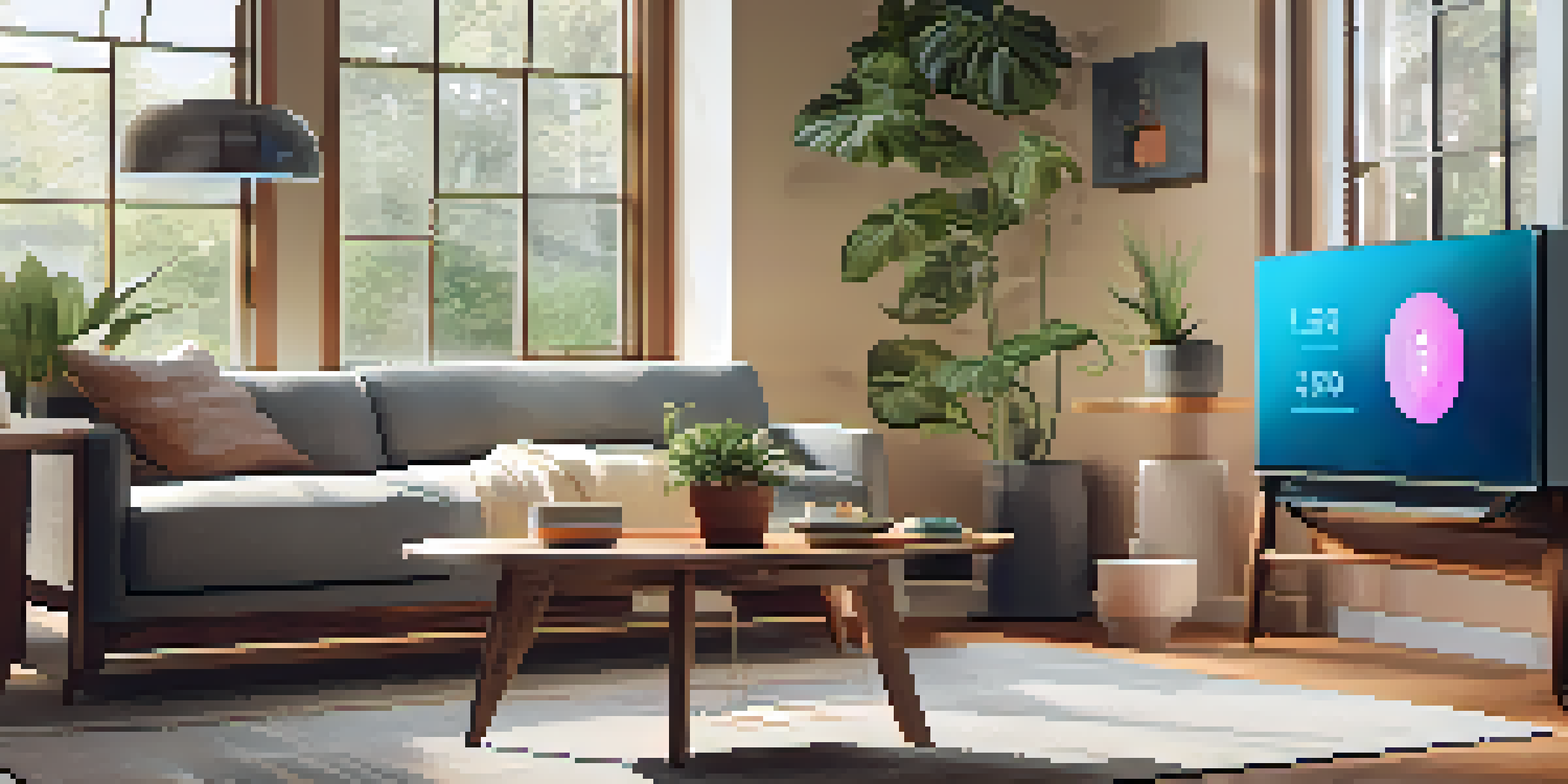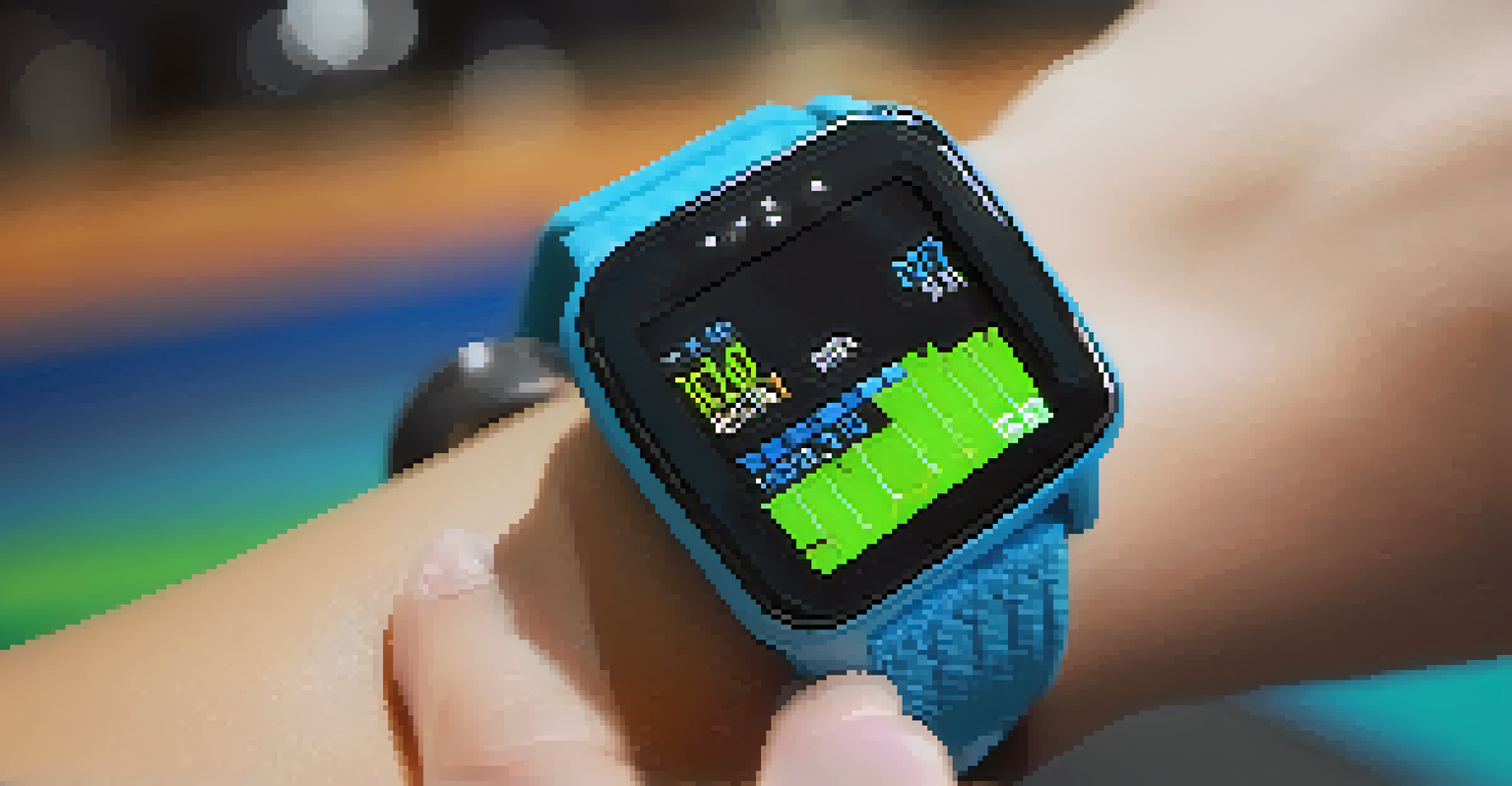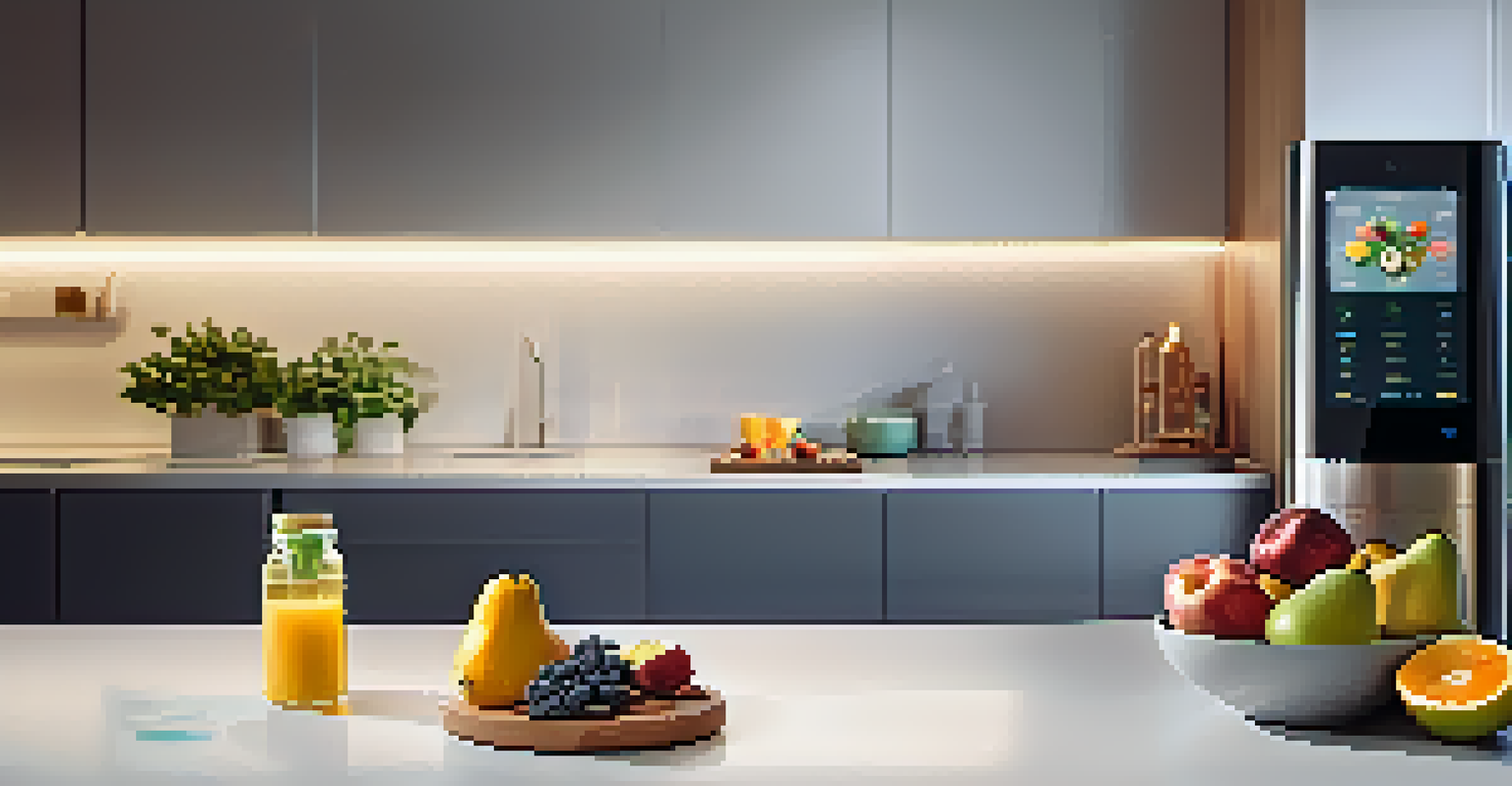Smart Home Devices: Monitoring Health from the Comfort Home

Understanding Smart Home Health Devices
Smart home devices are tech gadgets designed to make our lives easier, and they play a significant role in health monitoring. From smartwatches to advanced home assistants, these devices can track various health metrics right from your living room. Imagine having a personal health assistant that can remind you to take your medication or encourage you to move when you've been sedentary.
Technology is best when it brings people together.
These devices often connect to apps on your phone, creating a seamless experience for health management. For instance, a smart scale can not only track your weight but also provide insights into body fat percentage and muscle mass. With this data at your fingertips, staying on top of your health becomes much more manageable.
As technology advances, the capabilities of these smart devices continue to grow. Many can now monitor vital signs like heart rate and blood pressure, providing valuable information that can be shared with healthcare professionals. Ultimately, these devices empower individuals to take charge of their health without the need for constant doctor visits.
Key Features of Health Monitoring Devices
Health monitoring devices come equipped with various features that cater to different needs. For example, wearables like fitness trackers can monitor your sleep patterns, activity levels, and heart rates, giving you a comprehensive view of your wellness. These features can help you identify trends over time, making it easier to set and achieve health goals.

Another key feature is real-time alerts. Many smart home devices can notify you of significant changes in your health metrics, such as an irregular heartbeat or elevated blood pressure. This proactive approach can be crucial in preventing potential health issues before they escalate.
Smart Devices Enhance Health Tracking
Smart home health devices provide valuable insights and reminders, making it easier to monitor and manage your health.
Additionally, the integration of AI and machine learning in these devices allows for personalized recommendations. For instance, if your fitness tracker notices a decline in your activity levels, it might suggest specific workouts tailored to your preferences. This customization makes it easier for users to stay motivated and engaged in their health journey.
The Role of Smart Assistants in Health Management
Smart assistants like Amazon Alexa or Google Assistant are not just for controlling your lights; they can significantly aid in health management as well. By simply asking your assistant about your daily step count or reminding you to drink water, you can easily integrate health monitoring into your daily routine. This hands-free approach makes it incredibly convenient to stay mindful of your health.
The future is already here – it's just not very evenly distributed.
Moreover, these assistants can help track your medication schedule. You can set reminders that alert you when it's time to take your pills, reducing the chances of missing a dose. This feature is especially beneficial for those managing chronic conditions or multiple medications.
Additionally, smart assistants can provide access to health-related information. Whether you're looking for tips on healthy eating or advice on managing stress, a quick voice command can yield a wealth of knowledge. This accessibility empowers users to make informed decisions about their health effortlessly.
Integrating Smart Devices for Holistic Health Monitoring
One of the most significant advantages of smart home health devices is their ability to work together. For example, a smart scale can interact with your fitness tracker to provide a complete picture of your health. This level of integration allows for a more holistic approach to health monitoring.
Imagine your fitness tracker noticing that you haven’t been active enough and prompting your smart assistant to suggest a quick workout. This synergy not only keeps you informed but also encourages you to stay active and healthy. Such seamless connections make it easier to maintain a balanced lifestyle without feeling overwhelmed.
Integration Boosts Health Management
The ability of smart devices to work together offers a holistic view of health, encouraging proactive lifestyle choices.
Furthermore, many users appreciate the ability to share this integrated data with healthcare providers. By having access to comprehensive health metrics, doctors can make more informed decisions about patient care. This collaboration between technology and healthcare creates a supportive environment for better health outcomes.
Privacy Concerns with Smart Health Devices
While the benefits of smart home health devices are numerous, it's important to address privacy concerns. These devices collect a considerable amount of personal data, raising questions about how this information is stored and used. Many users worry about potential data breaches or unauthorized access to sensitive health information.
To alleviate these concerns, it's crucial to choose devices from reputable manufacturers that prioritize data security. Always read the privacy policies and understand what data is being collected and how it will be used. Opting for devices with strong encryption and user-controlled privacy settings can help protect your information.
Moreover, regularly updating your device's software can further enhance security. Just like you would secure your home, keeping your digital life protected is essential in today’s tech-driven world. By being proactive about privacy, you can enjoy the benefits of smart health monitoring without compromising your personal information.
The Future of Smart Home Health Technology
The future of smart home health technology looks promising, with innovations constantly emerging to improve user experience. As technology evolves, we can expect even more sophisticated devices that offer advanced health monitoring capabilities. Imagine devices that can predict health issues before they arise, providing alerts and recommendations tailored specifically to your needs.
Moreover, the integration of telehealth services will likely become more commonplace. This means that your smart devices can connect directly with healthcare providers for real-time consultations and health assessments. Such advancements will make healthcare more accessible and convenient, allowing you to receive care from the comfort of your home.
Privacy Matters in Health Tech
As smart health devices collect personal data, it's essential to choose secure options and understand privacy policies.
As these technologies continue to develop, user experience will remain at the forefront. Companies will focus on creating intuitive, user-friendly interfaces that make health management seamless and enjoyable. With this focus on accessibility, smart home health devices will become indispensable tools for maintaining our well-being.
Getting Started with Smart Home Health Devices
Starting your journey with smart home health devices is easier than you might think. Begin by identifying your health goals. Whether you want to improve your fitness, monitor your sleep, or manage a specific health condition, knowing your objectives will help you choose the right devices for your needs.
Next, explore the options available in the market. Look for devices that offer the features you need and have positive user reviews. It's often helpful to start with a simple device, like a fitness tracker, before expanding your collection of smart health gadgets.

Finally, integrate these devices into your daily routine. Set reminders, sync your apps, and engage with the data your devices provide. The more you interact with your smart health devices, the more benefits you’ll reap, turning health monitoring into a seamless part of your life.